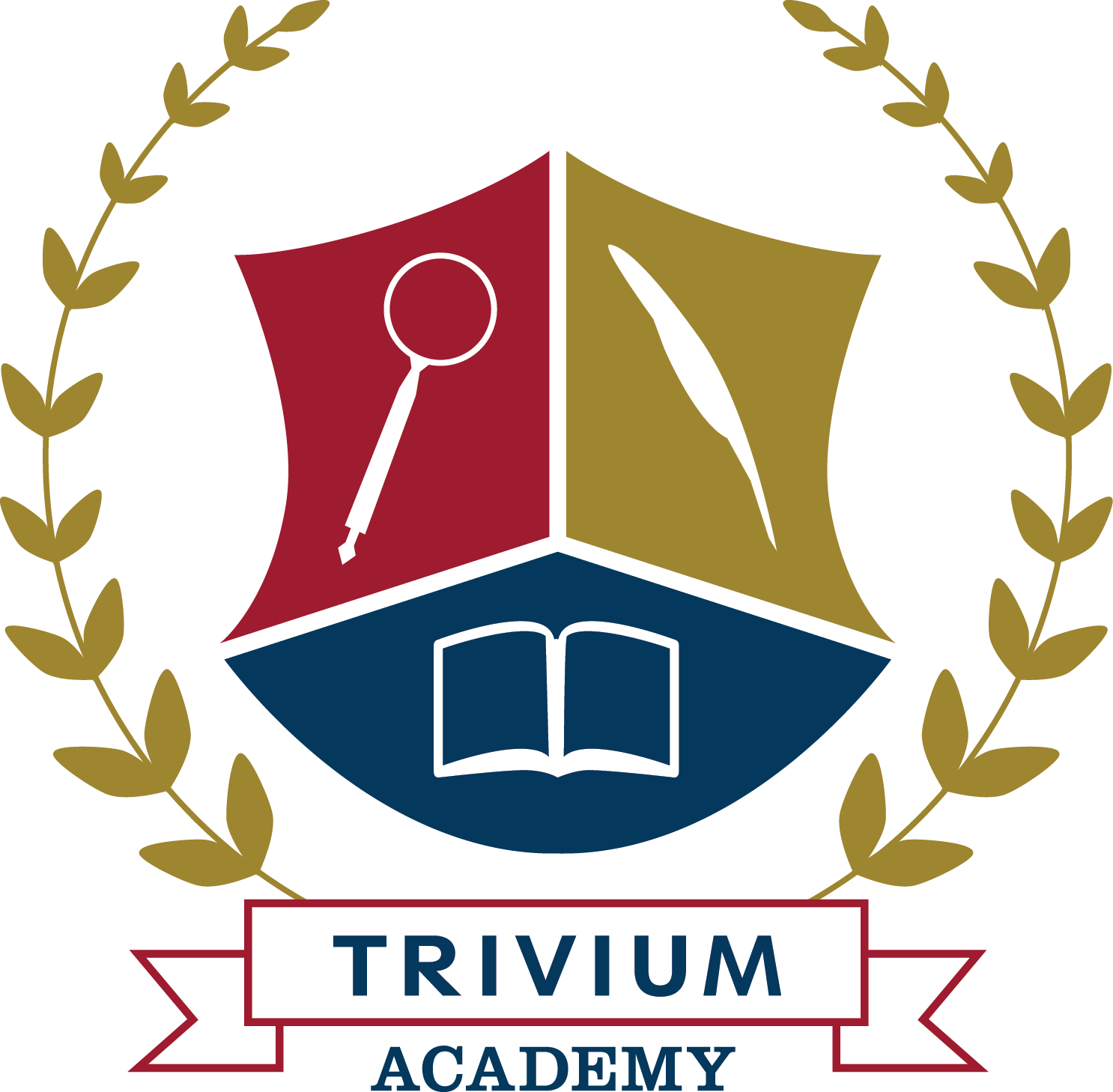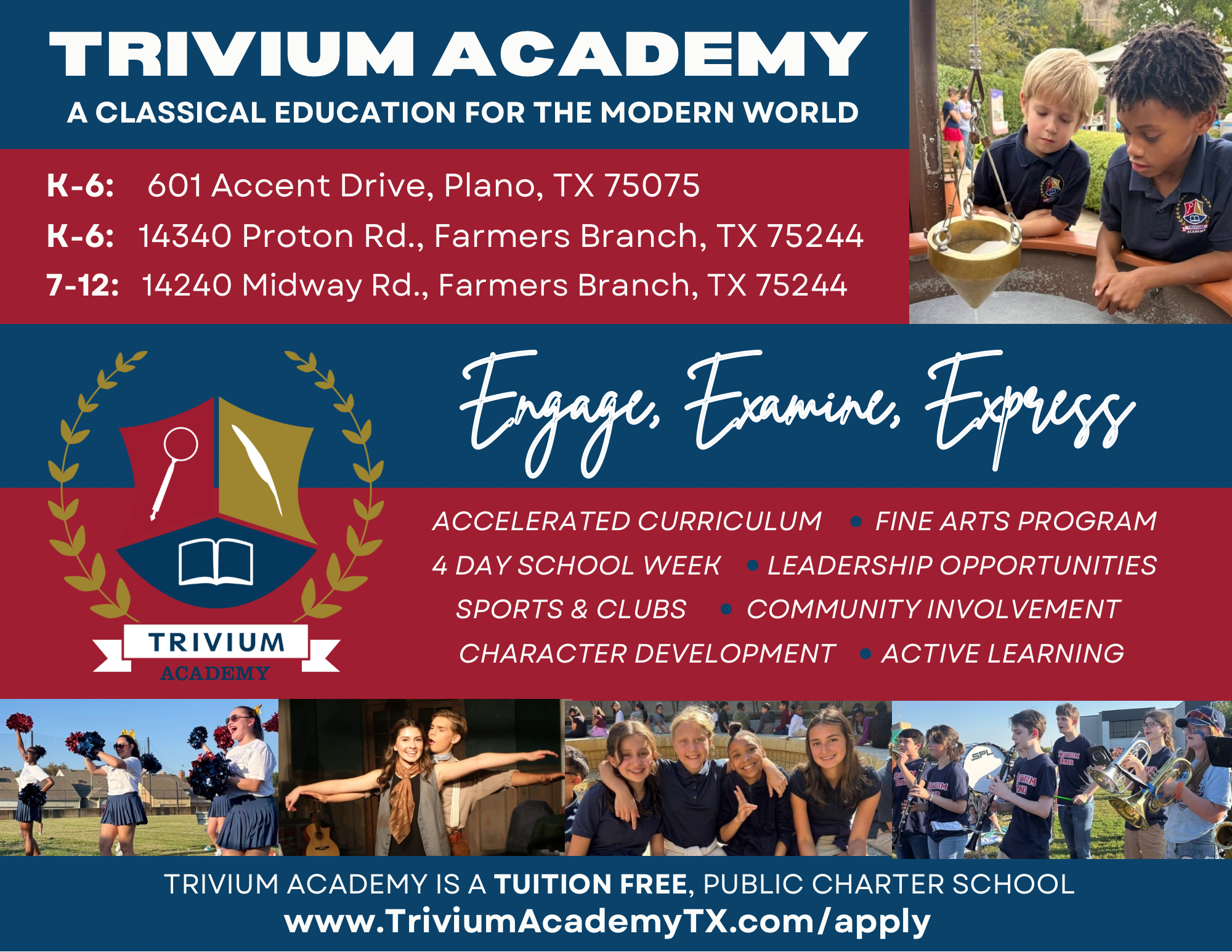Who are we?
Trivium Academy is an open-enrollment, tuition-free charter school sponsored by Portico Education Foundation, a non-profit organization that believes in offering our community a choice in public education. Trivium Academy provides a classical education for the modern world that trains children to be lifelong learners. Students engage in learning content, examine information critically, and express themselves with increasing sophistication each year. We provide a rigorous college preparatory program with a wide array of extracurricular activities resulting in well-rounded students who are prepared to challenge the world.
What does Trivium offer?
Genius Hour providing a creative outlet for students to research and create projects of their own choosing
A humanities block at every grade level
Fundamental and hands-on approach to science and math instruction
Special learning opportunities starting in elementary such as: art, debate, movement, music, Spanish, Latin
Brain breaks giving students time to recharge
Advisory classes in secondary to allow for more enrichment and remediation opportunities
Rotating schedule in secondary, so students don’t attend the same class at the same time every day
Service learning through community volunteerism
What is a modern classical education?
Firmly rooted in Ancient Greece, the art of teaching the trivium of grammar, logic, and rhetoric provides a classical education. In our modern world, we believe that these three components should not be separated into three distinct units of study over the course of an education as they would be in a traditional classical setting. Instead, the three parts of the trivium should be taught with increasing sophistication each year.
The goals for our students revolve around the Three E’s as we strive to teach the whole child cognitively, emotionally, socially, and physically. Our students will...
Engage in Learning: Grammar - the initial stage where students learn the fundamentals of various content areas
Examine Information: Logic - the analytical stage when students begin to ponder and question information
Express Themselves: Rhetoric - the final stage where the information is brought to maturity through the expression and communication of new ideas relating to students’ previously gained knowledge

